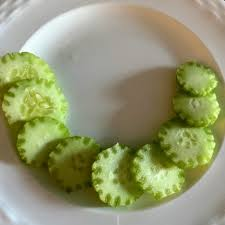I often use vinegar and salt as a weed deterrent, that way when my goats and ducks are "helping" and moseying about the yard, they can forage at will. I think they actually enjoy a wee taste of salt and vinegar on their usual fare. So what is the history of this inexpensive unassuming liquid?
Vinegar has been traced back to 5000 B.C.E. Babylon, and the practice of making vinegar from fermented liquids like wine or fruit juices is one of the oldest known food preservation techniques.
According to legend, vinegar's discovery came about when a forgotten wine was left in storage for several months, causing it to ferment and turn sour.
Traces of vinegar have been found in Egyptian urns, the Chinese began professionalizing vinegar production with dedicated vinegar makers in noble households.
During the Middle Ages, vinegar-making was well-established in cities like Orleans, France, and its uses soon became widespread. In general, vinegar is made using a two-step fermentation process. First, a liquid mixture containing yeast and sugar is fermented into alcohol. Then the alcohol goes through a second fermentation which produces a sour- or bitter-tasting product packed with acetic acid.
For including in your historical western: besides being useful as a cleaning agent and for food preservation, your characters could use vinegar to doctor a wound, or make a compress for headache and fever, or let the aroma revive someone who had fainted.
They might also partake of a refreshing drink, called a shrub, made of vinegar, sugar, and fruit—typically in a 1:1:1 proportion. This sweet and tart beverage was popular before refrigeration and carbonated drinks. The British navy used shrubs in the 18th century to combat scurvy, and it was popular in the US during prohibition.
There are a plethora of different vinegars, each with their own colors and flavors. Wine Vinegar: Champagne Vinegar: Apple Cider Vinegar: Rice Vinegar: Balsamic Vinegar: Black Vinegar: Honey Vinegar: Cane Vinegar: Malt Vinegar--Made from malted barley and used as a condiment. Making a shrub is another whole adventure. There are many recipes on-line and some can take 2-3 days of fermenting (cold method) or you can cook the fruit (hot method) for almost immediate use.
In the summer, I like make sweet and sour cucumbers. Peel, stripe the sides with a fork, slice thin, (no more than 1/4 inch) and put in lidded container with enough vinegar to cover cucumber slices. Stir in sugar (this is the tricky part) Start with at least a few table spoons. Let it sit, stir, check and keep adding sugar to your taste, tart but edible. Be carful when taste testing, they're zingy.
Do you have any interesting uses for vinegar?
https://en.wikipedia.org/wiki/Vinegar#:~:text=While%20vinegar%20making%20may%20be,blood%20soups%20around%20the%20world).
https://nutritionsource.hsph.harvard.edu/food-features/vinegar/
https://womersleyfoods.com/pages/a-short-history-of-vinegar New World Encyclopedia contributors My Stories:
Western Romance: Break Heart Canyon * Undercover Outlaw * Cowboys, Cattle and Cutthroats * A Cowboy’s Fate*Special Delivery.
Contemporary Romantic Thriller: Fatal Recall
Medieval Romance: The Dragon and The Rose * Iron Heart *Promise Me Christmas.
Victorian Romance: Lady Gallant * Victorian Dream
Romantasy: The Fae Warriors Trilogy: Solace * Bliss * Portence






.JPG)











